As Uvalde Students Return to School After May's Shooting, Comfort Dogs Are There to Ease the Transition (Exclusive)
Published Sept. 7 2022, 5:17 p.m. ET
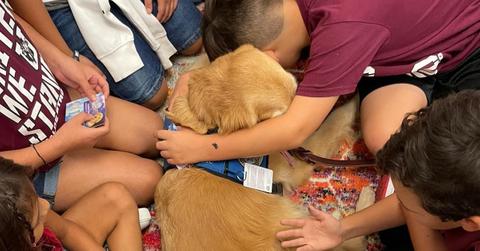
Back-to-school season may be an exciting time for many students, but for those who have survived a school shooting — a group of students that is growing in the U.S. due to a lack of common-sense gun safety laws — this time of year can be triggering. So to help ease the transition and make children feel safe, administrators are bringing comfort dogs to Uvalde, Texas schools.
To learn more about how comfort dogs are supporting students in Uvalde, we recently spoke with Bonnie Fear, the Lutheran Church Charities K-9 Crisis Response Coordinator, who is based in Colorado, and is currently managing a group of 10 golden retrievers and their handlers in Uvalde.
"Some of the handlers saw some of the kids in tears when they first met the dogs, and [then they] ended up with a smile," Fear tells Green Matters over the phone on Wednesday, speaking about how the first day of school went in Uvalde. "They saw it transform in front of them ... the dogs give them a sense of [a] release of their emotions."
Comfort dogs are easing the back-to-school transition in Uvalde, Texas.
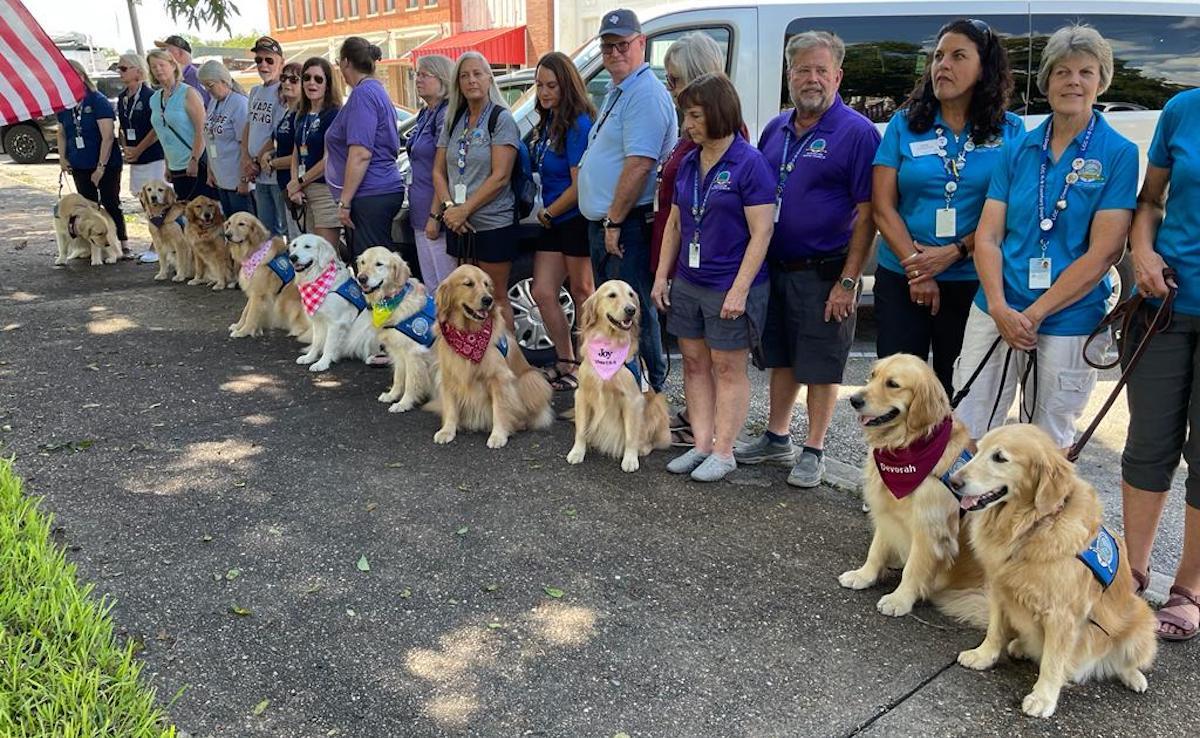
In the weeks following the school shooting in Uvalde, Texas that killed 19 students and two teachers back in May 2022, LCC K-9 Comfort Dog Ministry responded to the shooting by providing comfort dogs to those affected by the tragedy.
Bonnie Fear hoped that the Uvalde Consolidated Independent School District would call upon LCC to provide comfort dogs again come back-to-school season, and was thankful when they got the invite.
Robb Elementary School, where the shooting took place, is currently closed, and expected to be demolished; instead of returning to Robb, students and teachers are attending other schools in the district, as per CNN.
So, during the first three weeks of classes this September, Lutheran Church Charities (LCC) K-9 Comfort Dog Ministry is bringing a group of 10 golden retrievers to Uvalde schools every day, for students in grades from pre-K to 12.
"It's a small town so everyone knew everyone," Fear notes.
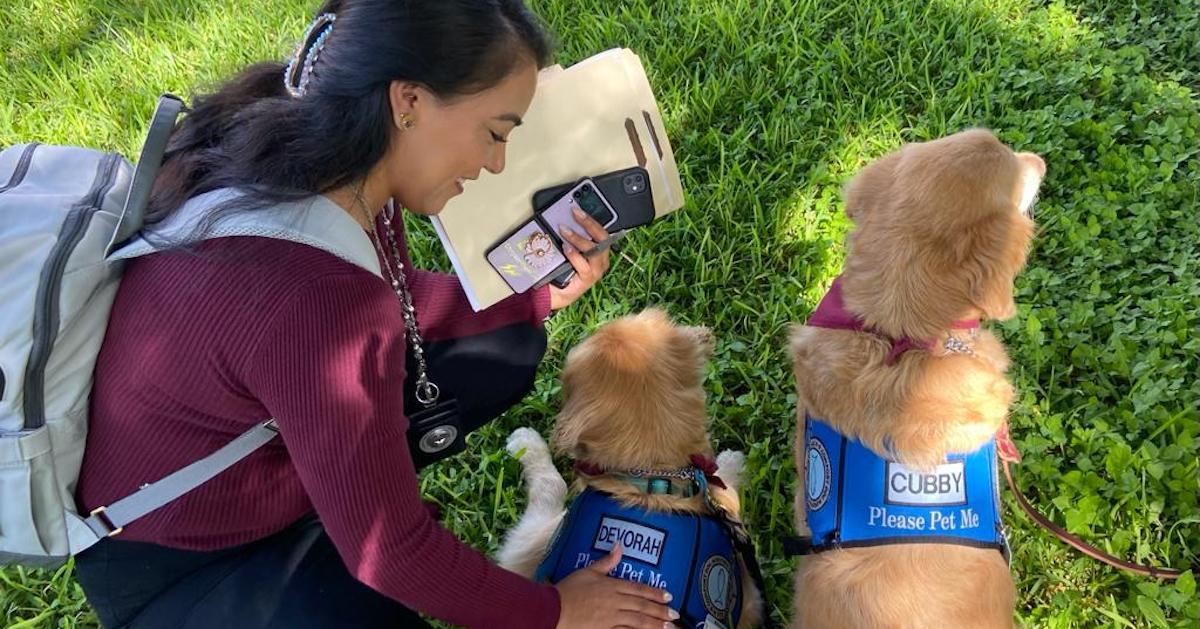
"It's that touch that these dogs provide that human touch can't even compete with," she continues. "Our dogs are extremely calm ... It's that calming presence they have that helps bring down blood pressure or just calms the person down."
She adds that these comfort dogs are so calm — and able to withstand endless pets and noises from hyper children — thanks to the training they receive. "It really pays off to have them very, very calm for these kids who are unsure of anything."
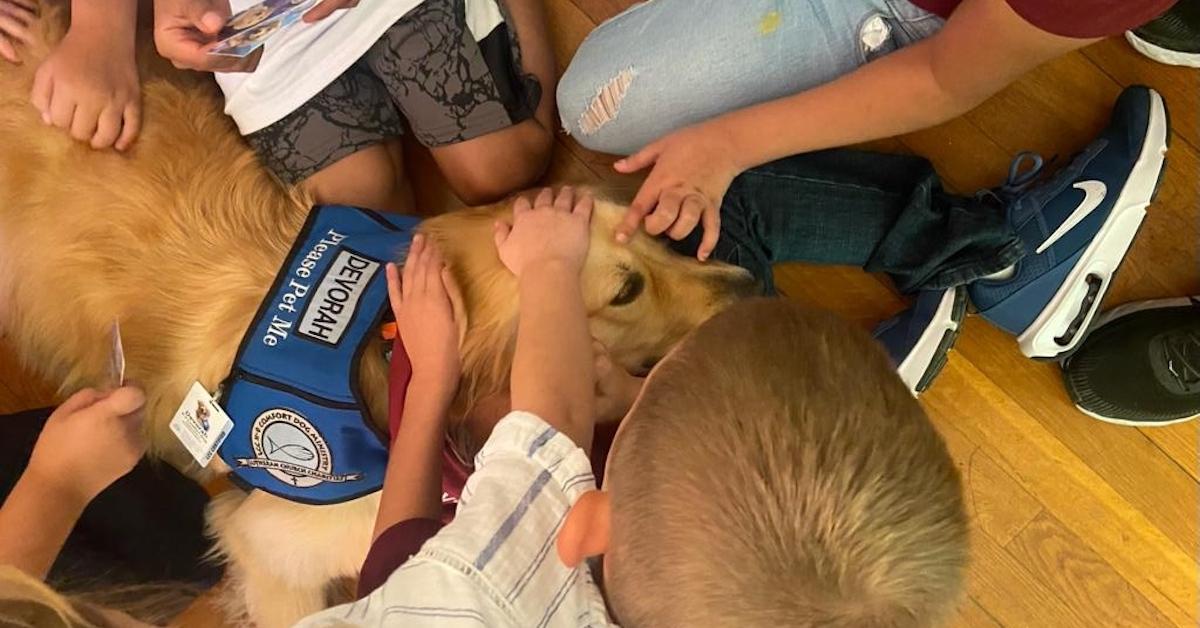
As Fear tells Green Matters, the goal of this program is "just to help these kids and staff for that moment."
"Petting a dog will help them forget or redirect their thoughts about what happened," Fear explains. "Something about that touch with the dogs or the hug with the dogs. The dogs know when to pull towards the person who needs them and they give them a golden hug."
This week, the 10 dogs on site in Uvalde hail from Nebraska, Colorado, and Texas, and the gang includes a dog named Devorah, who actually lives with Fear. Every now and then, trained handlers come pick up Devorah from Fear's home, and bring her to volunteer jobs around the country.
During the next two weeks, two other groups of 10 golden retrievers will come to Uvalde, each of whom will also be accompanied by two handlers.
What are comfort dogs, exactly? They are known to provide comfort after school shootings.
According to the American Kennel Club, “comfort dogs” is an informal nickname for crisis response dogs, who are dogs trained to keep people calm during the aftermath of stressful situations such as natural disasters or school shootings. To be called a comfort dog or crisis response dog, a dog must be trained and certified by an agency, after which their services can be “rented” out.
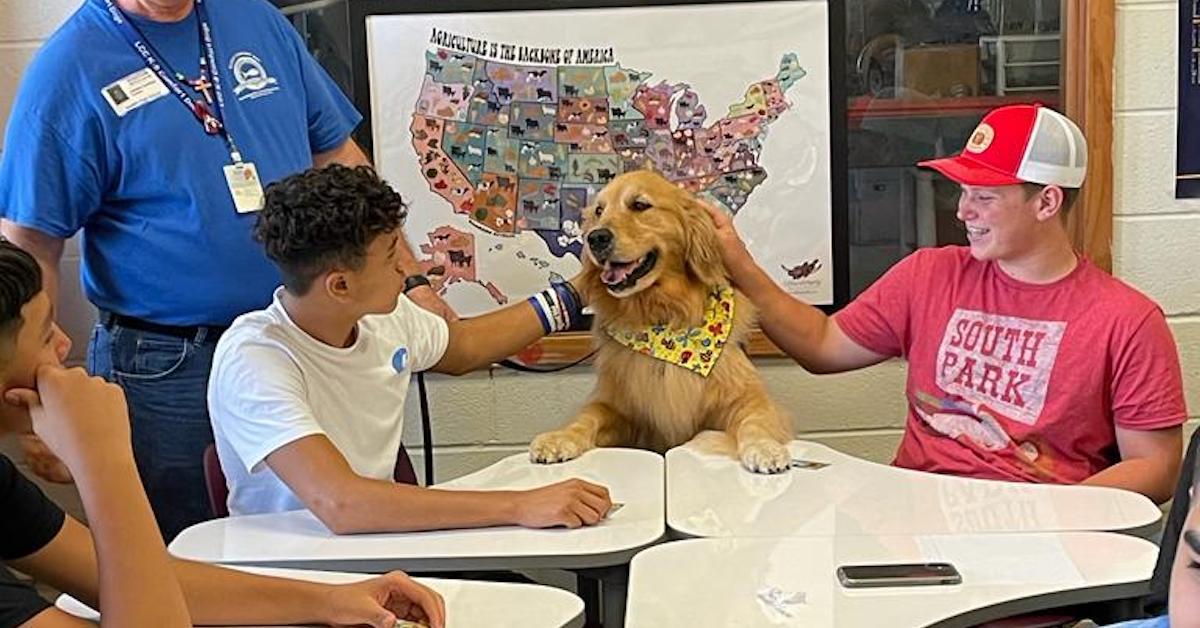
Similarly, there are therapy dogs, who also must receive training to achieve their title. These dogs live with an individual, who then volunteers their dog’s services at places such as schools and nursing homes, to provide comfort to people.
There are also emotional support animals (known as ESAs), who are certified to provide comfort to the human they live with, but not to others. They are not trained for any specific duties, but their presence alone is enough to help many individuals in need of support.